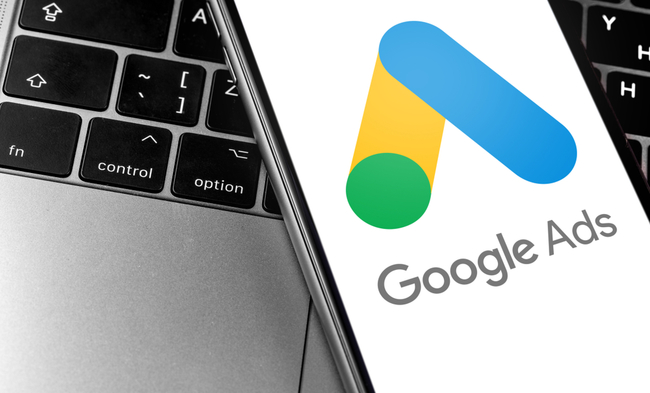How To Avoid Getting Banned from Google

Google is without a doubt the king of internet traffic. This is one bear that you don’t want to poke, otherwise, you could lose a catastrophic amount of potential traffic or income, depending on your relationship with Google. So, today, we’re going to give you all the tips that you need to stay on Google’s good side so that you can carry on running ads and cashing checks! We will also see how to survive in the worst-case scenario, when Google says no to all your attempts.
What Are Google Restrictions?
Google has a wide-sweeping range of restrictions that you could see thrown your way, going from having your ad pulled all the way to being banished from ranking with a Google penalty. None of these are good things, so you want to try your best to avoid getting slapped with a restriction. Here are a few examples of Google restrictions that you could see if you’re up to something shady or you’ve not done your job properly:
| – Declined display ads – Earning less per view/click – Having your AdSense account closed down – Losing money to refunds from your Ad Sense earnings – Ranking bans |
Reasons That Your Google Ads Promotion Was Banned
Once you cross a certain line, there’s no going back. So, we’re going to run you through all of the lines that you can potentially cross so that you know what to look out for and how to prevent yourself from poking the Google bear and getting banned from Google. Are you ready? Let’s dive into these!
#1 – You Create Non-Original Content
This is quite a broad point, but it’s without a doubt one of the more serious offences out there. If you steal content from others by simply copy and pasting it, then you’re going to get hit with duplication penalties. As soon as a piece of content goes live, Google takes note. If the same content then goes live on another website, it’ll get flagged as duplicate content. This is a major red flag for Google and will lead to penalties and you’ll get your Google Ads rejected.
So, spend time using related keywords, crafting unique content that is high-quality and written for humans. Google doesn’t want you to write for it. Instead, it wants you to write for real humans – so do that!
#2 – Bad Banner Design
If you’re going to put no effort into designing your banners, you’ll be breaking Google Ads requirements. The requirements for Google Ads state that your banners must be relevant to the topic, the correct sizes and designed well. If you’re not going to do any of this, Google will cancel your Google Ads campaign without warning.
Relevant content: What banner ads sizes and formats are the most popular
#3 – Hidden Text on Your Website
Back in 2010, you could get away with filling massive sections of your website with keywords written in the same colour as the background. As a result, your end users wouldn’t be able to see the mess of keywords and Google would rank you as you had keywords on your page. Unfortunately, this will not fly in 2022, and you need to be incredibly careful. Why? This is a major offence and Google will not take kindly to you hiding text from your audience. This will result in a Google Ad ban and contesting this will be virtually impossible. So, just make your text visible to everyone, it’s not hard.
Related content: How website speed reduce ad performance
#4 – Fake Landing Pages or Using Cloaked Links
If you’re running a Google Ads promotion and you’ve written up a nice title and subheading text, but then your link takes viewers to a totally unrelated page, Google is going to get mad. This is outright deceitful and you’ll guarantee yourself a Google Ad ban. Make sure any landing pages are related to the Google Ads that you’re running. It’s also not a good idea to have any malware or hidden scripts running on your Google Ad landing pages, as Google will pick this up and cancel your Google Ads campaign. Treat your users respectfully and don’t do anything you wouldn’t want done to you.
#5 – Displaying Too Many Units on Your Page
Another sure-fire way to get banned from Google is to display too many AdSense units on your page. Believe it or not, there is a max limit on the number of these units that you can pop on every page, so don’t go ham and display 100 units on a small landing page, you will get banned from Google. The same goes for displaying AdSense units on pages that Google isn’t really excited about. These types of sites include crypto, pornography, drugs & gambling.
#6 – Bad Navigation
One of Google’s biggest pet peeves is poor navigation. Make sure that you’re got breadcrumb navigation and ample menu buttons for your users to follow. This is incredibly frustrating if you’re trying to increase sales and conversions as more links and more navigation results in more chances to lose a customer, but if you don’t keep Google happy, you won’t be getting any traffic to convert in the first place. So, make sure your navigation is on point, that way Google will be happy and will keep sending traffic your way.
#7 – Creating Multiple AdWords Accounts
If you’re going to do business with Google, you need to make sure that it’s all from a single account. If you’re caught multi-accounting, then you’ll be in line for a Google ban. There are a few legitimate reasons for having a second Google AdWords account, but if they’re both active during the same period of time, then you’re not doing it for one of the few accepted reasons. Stick to a single account and wait the time needed if you’re stuck in an approval phase. It’s not worth the risk to try and jump the queue with additional accounts,
#8 – Poor English
A lot of website owners want as much content as possible and they want it as cheap as possible. This will result in poor grammar and spelling, which Google doesn’t like. Google is starting to place more importance on the quality of your content, so it’s high time that you start hiring writers that are worth their weight in gold. Find a bit more budget to hire a writer that knows their stuff and has impeccable English. Otherwise, you could find that you’re setting yourself up for a Google Ad ban.
What Can I Do If I’ve Got a Google Ad Ban?
Uhh ohh, it’s too late, is it? You found this post after breaking multiple rules and guidelines. Fortunately, not all is lost. You can restore balance to the world and recover your Google reputation, but it’s not going to be easy. First up, identify which area(s) you slipped up in. Next, you need to fix them. Don’t rush it, take as much time as you need to do this properly, otherwise, you’ll be stuck in the sin bin even longer. Once you’ve fixed all your violations and you promise to never upset Google again, you can submit a request to contest the ban. If you’ve done your job well and fixed all your violations, you should be all set to go. However, remember that if you upset Google again, it will be virtually impossible to fix the damage!
Don’t Try to Deceive Internet Users
This should go without saying. If you’re going to try and deceive internet users, Google will pick up on it. Google is constantly developing and evolving its algorithms better to understand your website and the intent of users. If it picks up that you’re trying to deceive internet users with cloaked pages, hidden text, malware, scripts and dreadful English, then you’re going to find yourself staring down the barrel of a Google penalty. So, just be a good marketer and respect internet users. If you do this, Google will respect you.
7 tips to avoid getting banned from Google:
- Follow Google’s guidelines: Make sure you follow Google’s guidelines for webmasters and SEO best practices. Avoid any black hat SEO techniques that violate Google’s guidelines, such as keyword stuffing, cloaking, and link schemes.
- Don’t buy links or participate in link schemes: Google considers buying links or participating in link schemes as a violation of its guidelines. Instead, focus on creating quality content and building natural links.
- Avoid duplicate content: Google penalizes websites with duplicate content. Make sure you publish original and unique content on your website.
- Don’t use hidden text or links: Google considers hiding text or links from users but showing them to search engines as a deceptive practice. Make sure all content and links are visible to both users and search engines.
- Monitor your website’s traffic: Keep an eye on your website’s traffic and search rankings. If you notice any sudden drops in traffic or rankings, investigate the cause and fix any issues.
- Use Google Search Console: Google Search Console is a powerful tool that can help you monitor your website’s performance, identify issues, and receive alerts from Google. Make sure you have set up and regularly check your Search Console account.
- Be patient: SEO is a long-term strategy, and it takes time to see results. Avoid any shortcuts that promise quick results, as they are likely to violate Google’s guidelines and lead to penalties or bans.
Use Alternative Ad Networks
At the end of the day, Google isn’t the be-all and end-all of the display ad world. There are plenty of fantastic alternative ad networks out there that will let you run whatever type of ads you want, have whatever you want on your landing pages and run as many display ad units as you want. These are great alternatives if you’re waiting out a Google Ad ban or simply want to diversify your ad network reach.
So, check out alternative ad networks and show Google who’s boss!
Start Ad Campaign!

